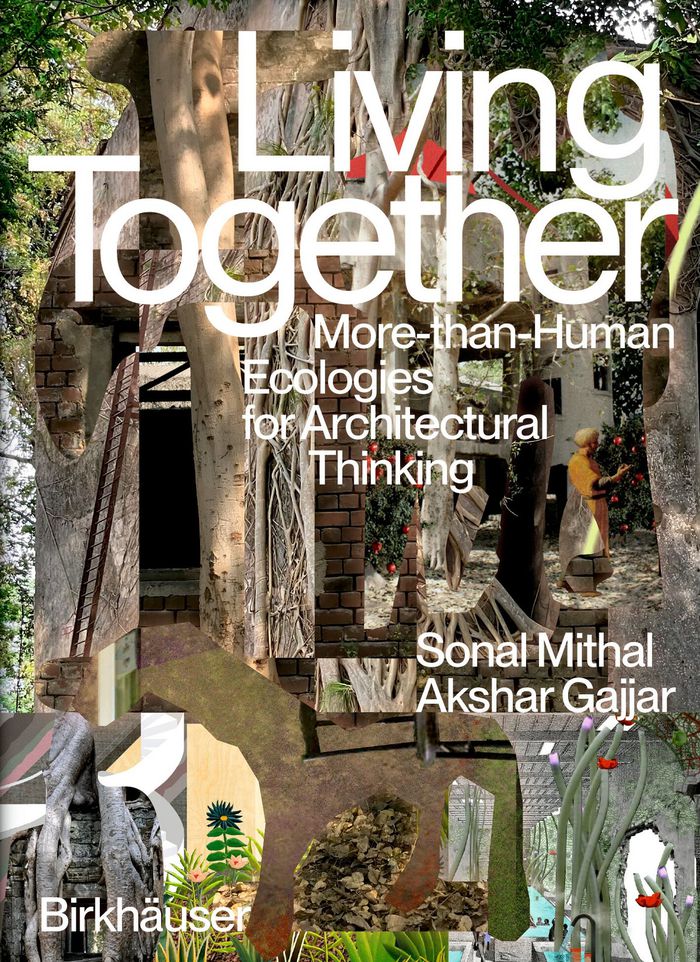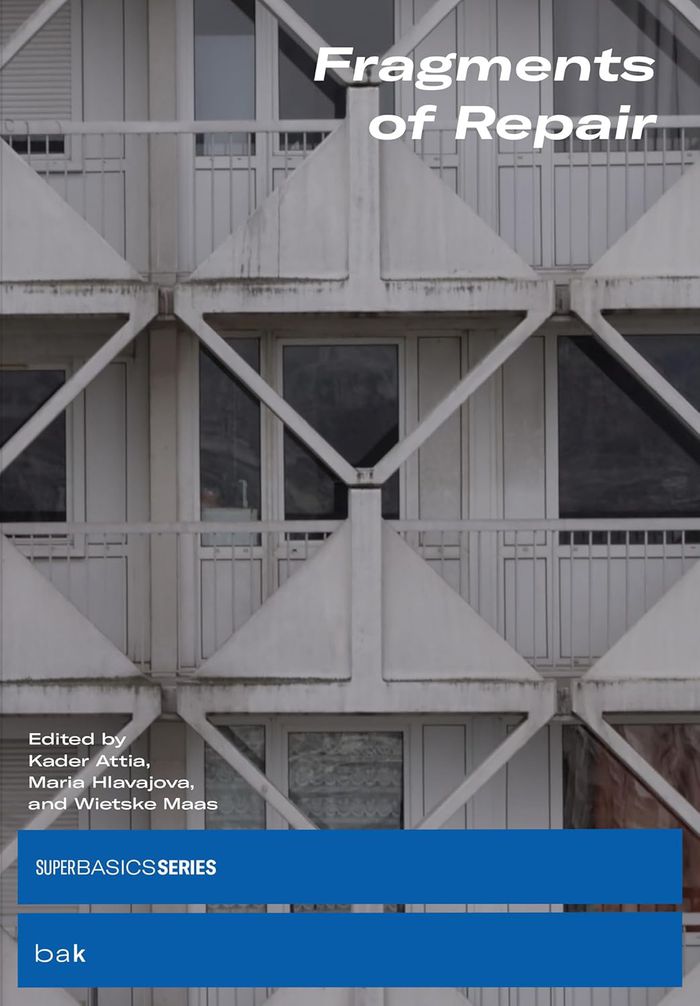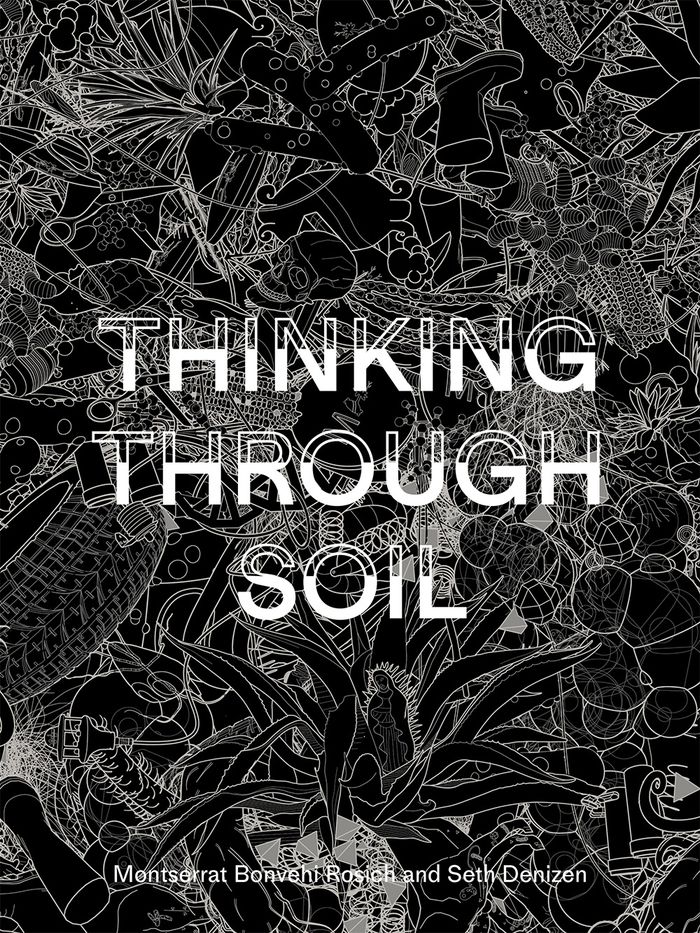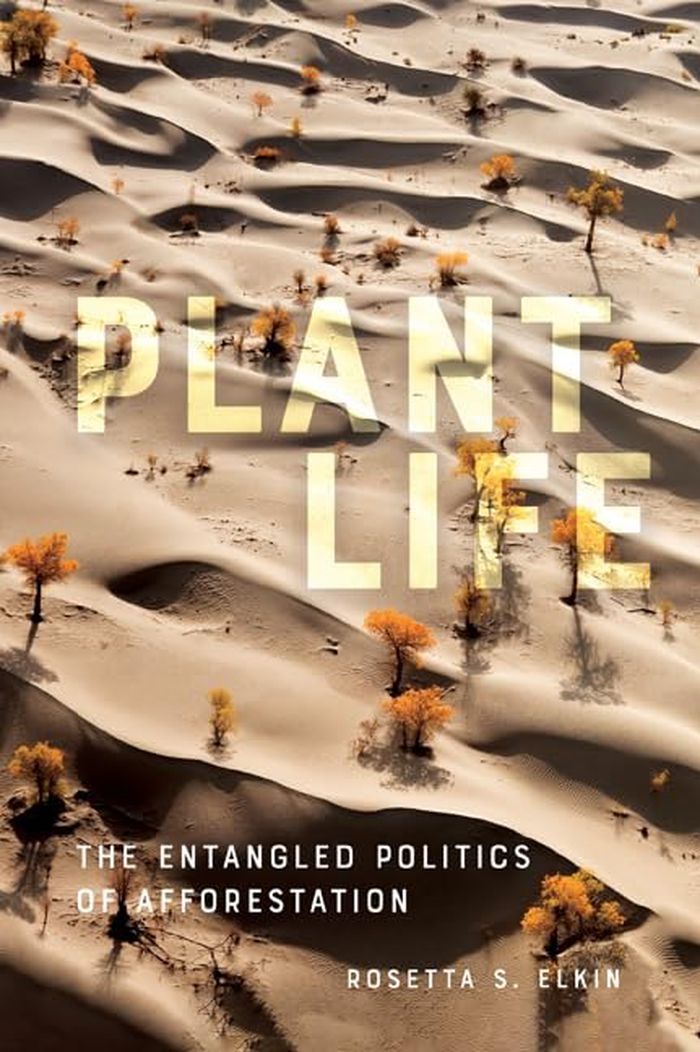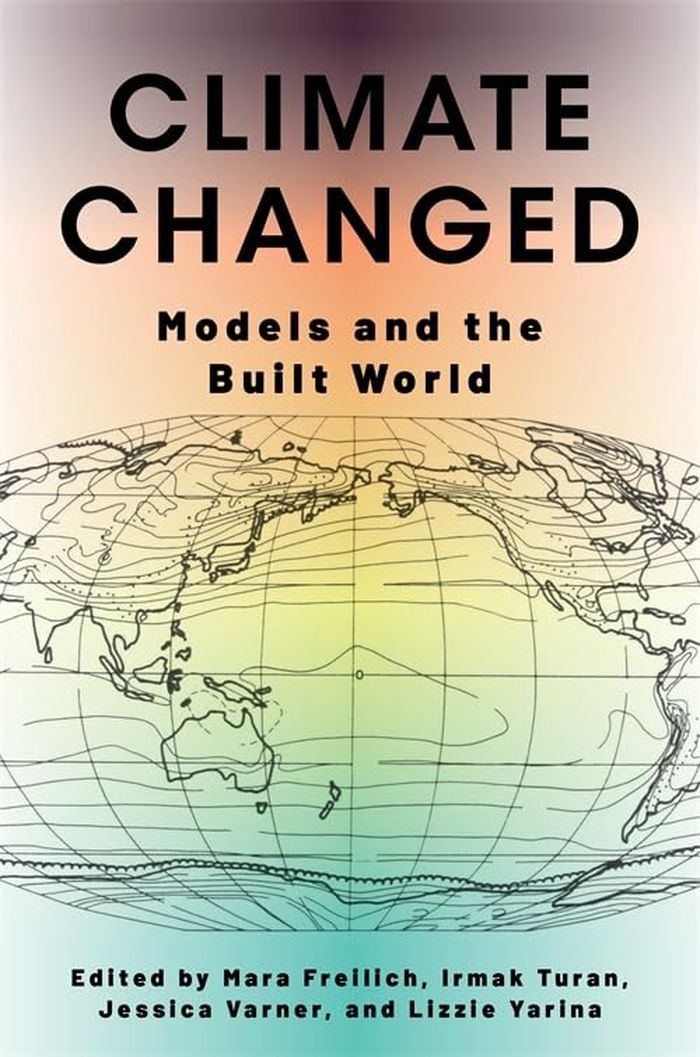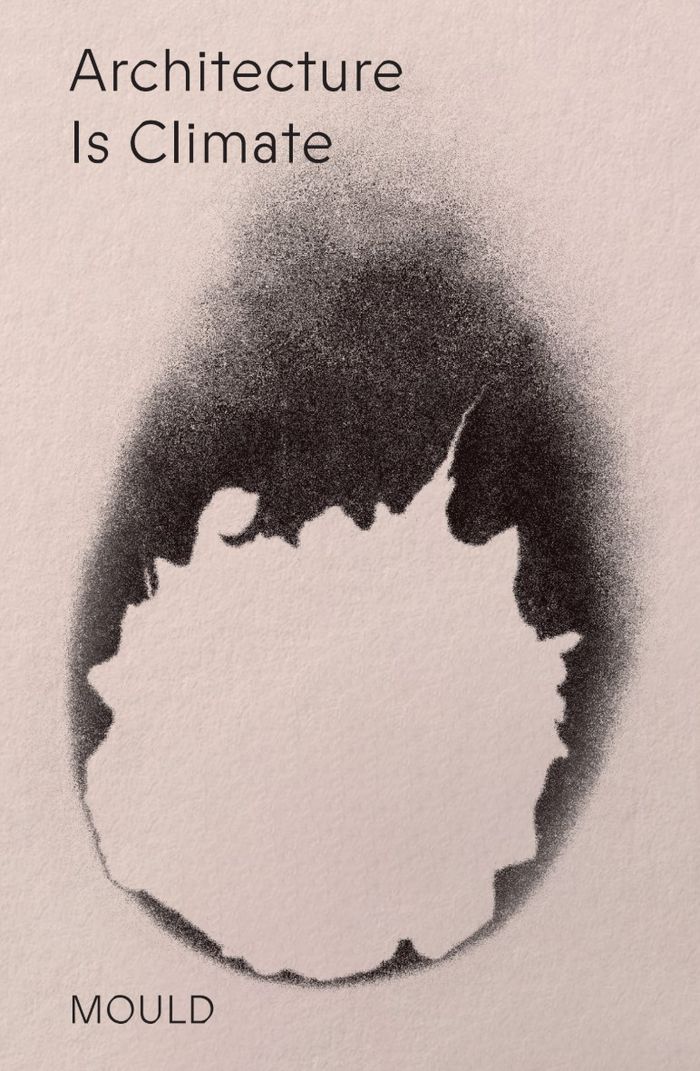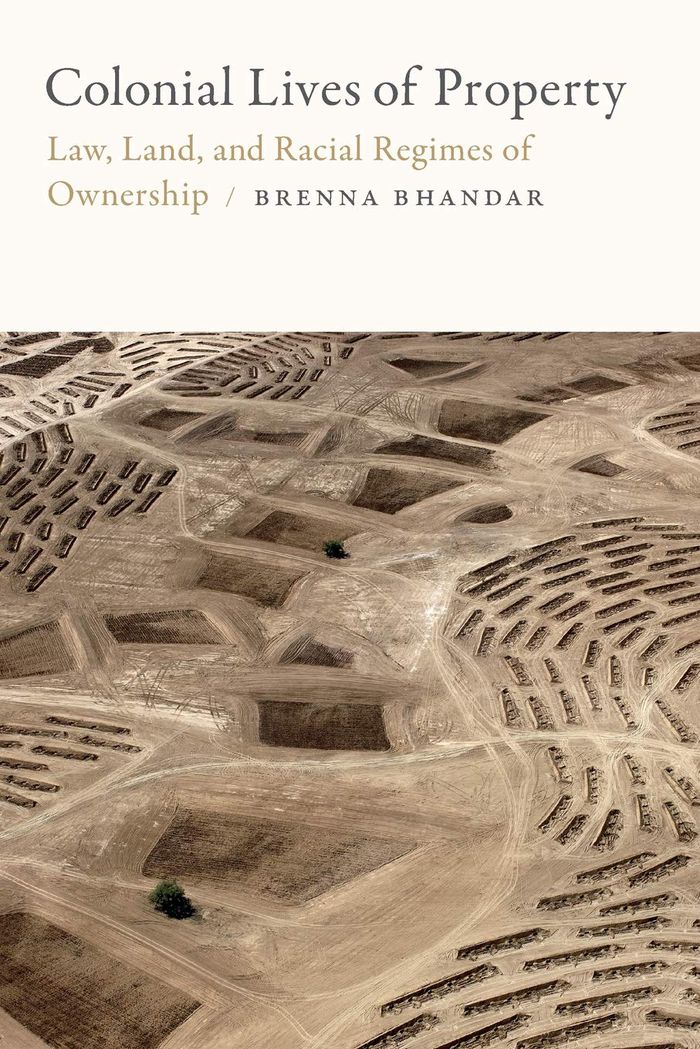$70.00
(available in store)
Summary:
What does it mean for architecture to be a truly collaborative venture where plants and other species also exercise their agency? This would mean to make architecture receptive—physically, premised on creating spaces for accommodating multispecies; and intellectually, premised on becoming aware of the needs of more-than-humans. Design-based approaches whether technocratic(...)
Living Together: More-Than-Human Ecologies for Architectural Thinking
Actions:
Price:
$70.00
(available in store)
Summary:
What does it mean for architecture to be a truly collaborative venture where plants and other species also exercise their agency? This would mean to make architecture receptive—physically, premised on creating spaces for accommodating multispecies; and intellectually, premised on becoming aware of the needs of more-than-humans. Design-based approaches whether technocratic or demonstrating a theoretical standpoint are fragmented today and demand a holistic approach. ''Living Together'' positions itself in that fragmentation. The book is an inquiry into an architecture which allows multispecies alliances to take place. It brings materialist and ecological inquiries to architectural design, practice, and thinking; acknowledging a necessity to go beyond established architectural ideals of progress, monumentality, longevity, and permanence.
Architecture ecologies
Fragments of repair
$44.00
(available in store)
Summary:
'Fragments of Repair' is the fourth publication in BAK’s publishing series BASICS which revisits fundamental questions and urgencies of our time—the “basics”—and seeks to develop afresh the building blocks of lexicons, tactics, scenarios, and relations that enable action in contemporary conditions. Today’s entwined crises reveal deep-seated wounds that issue from(...)
Architecture ecologies
May 2025
Fragments of repair
Actions:
Price:
$44.00
(available in store)
Summary:
'Fragments of Repair' is the fourth publication in BAK’s publishing series BASICS which revisits fundamental questions and urgencies of our time—the “basics”—and seeks to develop afresh the building blocks of lexicons, tactics, scenarios, and relations that enable action in contemporary conditions. Today’s entwined crises reveal deep-seated wounds that issue from historical colonialisms and present-day authoritarianisms, economic disparity and growing racial violence, and the abuses inflicted on vulnerable populations and the planet. To address this disquieting chaos, this book, co-conceptualized by artist Kader Attia with curators Maria Hlavajova and Wietske Maas, offers a collection of long- and short-form essays, visual essays, and conversations on decolonial repair as both a tool and a tactic of engagement with the current state of the world.
Architecture ecologies
$54.00
(available in store)
Summary:
To think through soil is to engage with some of the most critical issues of our time. In addition to its agricultural role in feeding eight billion people, soil has become the primary agent of carbon storage in global climate models, and it is crucial for biodiversity, flood control, and freshwater resources. Perhaps no other material is asked to do so much for the human(...)
Architecture ecologies
June 2025
Thinking through soil: Wastewater agriculture in the Mezquital Valley
Actions:
Price:
$54.00
(available in store)
Summary:
To think through soil is to engage with some of the most critical issues of our time. In addition to its agricultural role in feeding eight billion people, soil has become the primary agent of carbon storage in global climate models, and it is crucial for biodiversity, flood control, and freshwater resources. Perhaps no other material is asked to do so much for the human environment, and yet our basic conceptual model of what soil is and how it works remains surprisingly vague. In cities, soil occupies a blurry category whose boundaries are both empirically uncertain and politically contested. Soil functions as a nexus for environmental processes through which the planet’s most fundamental material transformations occur, but conjuring what it actually is serves as a useful exercise in reframing environmental thought, design thinking, and city and regional planning toward a healthier, more ethical, and more sustainable future. Through a sustained analysis of the world’s largest wastewater agricultural system, located in the Mexico City–Mezquital hydrological region, ''Thinking Through Soil'' imagines what a better environmental future might look like in central Mexico. More broadly, this case study offers a new image of soil that captures its shifting identity, explains its profound importance to rural and urban life, and argues for its capacity to save our planet.
Architecture ecologies
$41.99
(available in store)
Summary:
In "Plant life", Rosetta S. Elkin explores the procedures of afforestation, the large-scale planting of trees in otherwise treeless environments, including grasslands, prairies, and drylands. Elkin reveals that planting a tree can either be one of the ultimate offerings to thriving on this planet, or one of the most extreme perversions of human agency over it. Using(...)
Plant life: the entangled politics of afforestation
Actions:
Price:
$41.99
(available in store)
Summary:
In "Plant life", Rosetta S. Elkin explores the procedures of afforestation, the large-scale planting of trees in otherwise treeless environments, including grasslands, prairies, and drylands. Elkin reveals that planting a tree can either be one of the ultimate offerings to thriving on this planet, or one of the most extreme perversions of human agency over it. Using three supracontinental case studies-scientific forestry in the American prairies, colonial control in Africa's Sahelian grasslands, and Chinese efforts to control and administer territory-Elkin explores the political implications of plant life as a tool of environmentalism. By exposing the human tendency to fix or solve environmental matters by exploiting other organisms, this work exposes the relationship between human and plant life, revealing that afforestation is not an ecological act: rather, it is deliberately political and distressingly social.
Architecture ecologies
$42.00
(available to order)
Summary:
This first volume in a series examining intersections between architectural theory and practice addresses environmental crisis and spatial justice through four essays. Marc Angélil and Cary Siress trace the evolution from Technocene, Thermocene, Plantationocene, to Entropocene, Capitalocene, and Urbicene. Elke Krasny reflects on scales of care within social justice and(...)
Architecture ecologies
June 2025
New tools, Vol. 1: Architectural discourses on the Anthropocene
Actions:
Price:
$42.00
(available to order)
Summary:
This first volume in a series examining intersections between architectural theory and practice addresses environmental crisis and spatial justice through four essays. Marc Angélil and Cary Siress trace the evolution from Technocene, Thermocene, Plantationocene, to Entropocene, Capitalocene, and Urbicene. Elke Krasny reflects on scales of care within social justice and decolonization. Contributors explore the "Curated Diner" as a planning intervention. Finally, Space Caviar advocates for a non-extractive approach to architecture as part of a broader economic transformation. These interdisciplinary contributions aim to reshape the discourse and discuss equitable, inclusive, and intergenerational practices.
Architecture ecologies
Architecture and the right to heal: Resettler nationalism in the aftermath of conflict and disaster
$52.95
(available in store)
Summary:
In "Architecture and the right to heal," Esra Akcan calls for architecture to take an active role in healing communities affected by socioeconomic, political, and environmental disasters. Akcan frames these processes by discussing buildings and spaces in relation to climate change mitigation and transitional justice. Focusing on lands held by the former Ottoman Empire,(...)
Architecture and the right to heal: Resettler nationalism in the aftermath of conflict and disaster
Actions:
Price:
$52.95
(available in store)
Summary:
In "Architecture and the right to heal," Esra Akcan calls for architecture to take an active role in healing communities affected by socioeconomic, political, and environmental disasters. Akcan frames these processes by discussing buildings and spaces in relation to climate change mitigation and transitional justice. Focusing on lands held by the former Ottoman Empire, Akcan highlights the ongoing struggle to heal after internal social, state, and business-led violence ranging from forced disappearance to mass extinction. Putting forth the concept of resettler nationalism as a source of displacement and partition, she argues that while architecture and urban planning have been weaponized to segregate and subjugate minorities throughout history, they could instead confront systemic violence and make accountability and reparations possible. For Akcan, healing constitutes a matter of rights as well as a holistic notion of justice that addresses the intersections of social, global, and environmental issues and one can be achieved through architecture. By locating spaces of political and ecological harm, Akcan advocates for healing on individual, communal, and planetary levels.
Architecture ecologies
Epistemic Ecology
$86.00
(available in store)
Summary:
Mainstream epistemology focuses on static states. In ''Epistemic Ecology'', Catherine Elgin adopts a dynamic stance, viewing epistemic subjects as agents rather than onlookers. She examines how, individually and collectively, we construct our epistemic practices, policies, principles, and procedures to overcome our limitations, exploit our assets, and correct our(...)
Epistemic Ecology
Actions:
Price:
$86.00
(available in store)
Summary:
Mainstream epistemology focuses on static states. In ''Epistemic Ecology'', Catherine Elgin adopts a dynamic stance, viewing epistemic subjects as agents rather than onlookers. She examines how, individually and collectively, we construct our epistemic practices, policies, principles, and procedures to overcome our limitations, exploit our assets, and correct our mistakes. Taking an ecological approach, she shows how human organisms and their social and natural environments mutually adjust to accommodate each other. Elgin’s ecological model of understanding reveals that epistemic agents and communities are interdependent and are more deeply implicated in the individuation and characterization of the phenomena they access than standard spectatorial approaches to epistemology assume.
Architecture ecologies
$42.00
(available in store)
Summary:
"Climate changed" examines models and their imperfect yet central role in understanding the relationship between global climate dynamics and the human-built environment. It compares and synthesizes the methods and function of models in disciplines ranging from architecture and planning to climate science and natural hazards research. This book considers how disparate(...)
Architecture ecologies
August 2025
Climate changed : Models and the built world
Actions:
Price:
$42.00
(available in store)
Summary:
"Climate changed" examines models and their imperfect yet central role in understanding the relationship between global climate dynamics and the human-built environment. It compares and synthesizes the methods and function of models in disciplines ranging from architecture and planning to climate science and natural hazards research. This book considers how disparate models are woven together to understand the climate crisis, underscoring the necessity of combining locally situated and transdisciplinary knowledge with climate science to navigate current and future cataclysmic changes. It highlights the challenges and consequences of disciplinary boundaries, siloed scientific knowledge, and uneven data and develops ways to overcome these limitations.
Architecture ecologies
Architecture is climate
$38.00
(available in store)
Summary:
Rejecting outdated paradigms of endless linear growth, technocratic fixes, and the separation of humans from nature, '‘Architecture Is Climate’' argues that architecture must be fundamentally rethought – not as the design of objects, but as a practice entangled with climate, politics, history, and social justice. Through eight key themes (knowledge, economy, land,(...)
Architecture is climate
Actions:
Price:
$38.00
(available in store)
Summary:
Rejecting outdated paradigms of endless linear growth, technocratic fixes, and the separation of humans from nature, '‘Architecture Is Climate’' argues that architecture must be fundamentally rethought – not as the design of objects, but as a practice entangled with climate, politics, history, and social justice. Through eight key themes (knowledge, economy, land, resources, infrastructure, work, policy, and culture) it explores how climate breakdown reshapes every aspect of architectural thinking and doing. Drawing on diverse voices and grounded examples from around the world, it offers a critique but also a vision of other possible architectures already in the making.
Architecture ecologies
$36.95
(available in store)
Summary:
In this book, Brenna Bhandar examines how modern property law contributes to the formation of racial subjects in settler colonies and to the development of racial capitalism. Examining both historical cases and ongoing processes of settler colonialism in Canada, Australia, and Israel and Palestine, Bhandar shows how the colonial appropriation of indigenous lands depends(...)
Colonial lives of property: law, land, and racial regimes of ownership
Actions:
Price:
$36.95
(available in store)
Summary:
In this book, Brenna Bhandar examines how modern property law contributes to the formation of racial subjects in settler colonies and to the development of racial capitalism. Examining both historical cases and ongoing processes of settler colonialism in Canada, Australia, and Israel and Palestine, Bhandar shows how the colonial appropriation of indigenous lands depends upon ideologies of European racial superiority as well as upon legal narratives that equate civilized life with English concepts of property. In this way, property law legitimates and rationalizes settler colonial practices while it racializes those deemed unfit to own property. The solution to these enduring racial and economic inequities, Bhandar demonstrates, requires developing a new political imaginary of property in which freedom is connected to shared practices of use and community rather than individual possession.
Architecture ecologies
